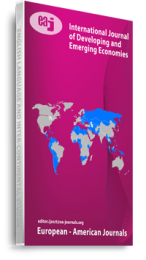The study looked at the issues of IFRS’s adoption in Nigeria, and its challenges. It also examined the attendant benefits of IFRS in term of high quality, transparent, reliable and comparable financial statement and how it will be of help to Nigeria financial reporting practice. The sample size which comprises of preparers and users of financial statements from reputable quoted public companies and big four accounting firms in Nigeria (i.e KPMG, Akintola William Deloitte, Pricewaterhousecoopers, and Enrst and Young) was drawn from the entire population which comprises of public companies, financial institutions, players in the capital market, government, e.t.c. . Lagos State, the south-west Nigeria, was also picked as the sampling area because this state has the highest concentration of the study’s sample size. Descriptive Statistics were used to analyse data collected from both primary and secondary sources. 100 questionnaires containing 28 relevant questions relating to IFRS adoption in Nigeria, its benefits and challenges, were used to collect data from respondents from both users and preparers of financial statement perspectives. However, after the analysis of the data that was empirically gathered, the findings of this study revealed that full disclosure requirements of IFRS and its emphasis on fair value accounting for the measurement of some items of financial statements (e.g item of property, plant and equipments) will lead to high quality, transparent, and reliable financial statements. The findings also concluded that elimination of reporting language barriers will encourage cross border investment and thus more inflows of foreign direct investments.
Keywords: Cross border Investments, Fear value, Financial Statements Comparability, Full disclosure requirement

